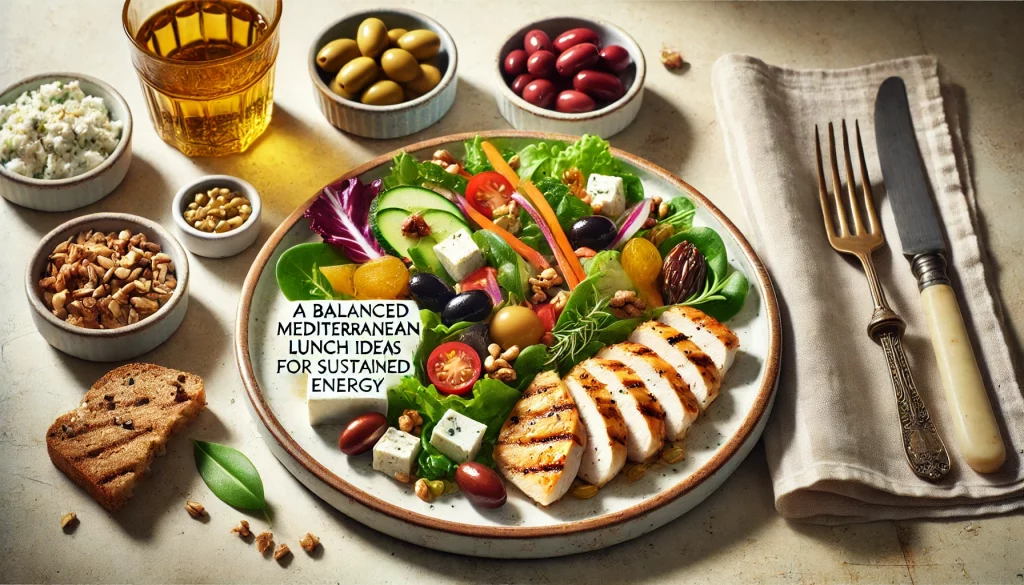Delicious And Nutritious Mediterranean Tablespoon Diet Plan Ideas
“The secret of health for both mind and body is not to mourn for the past, worry about the future, or anticipate troubles, but to live in the present wisely and earnestly.” – Buddha.
The Mediterranean diet stands out as a beacon of simplicity and effectiveness in a world overwhelmed by complex eating plans. This approach to eating focuses on whole foods and fresh ingredients, using simple measurements to maintain portion control. The Mediterranean way of eating has proven its worth through generations, offering a balanced and sustainable approach to nutrition. Recent studies from The New England Journal of Medicine have highlighted the remarkable health benefits of this diet, particularly in reducing cardiovascular disease risk. A key aspect of following tablespoon diet plan ideas involves using this simple measurement tool to control portions while still enjoying delicious meals. Using a tablespoon as a guide helps create satisfying portions without the need for complicated calculations or strict restrictions. The Mediterranean approach celebrates the joy of eating while maintaining healthy boundaries. This method proves that healthy eating doesn’t require elaborate rules or restrictions.

The day begins with a simple yet nourishing breakfast that sets the tone for healthy eating. A slice of whole-grain toast topped with mashed avocado and a measured drizzle of olive oil provides sustained energy throughout the morning. Fresh fruits and a small portion of nuts can complement this breakfast, offering additional nutrients and flavor. The mediterranean tablespoon diet plan ideas emphasize the importance of starting the day with wholesome ingredients that satisfy both hunger and nutritional needs. Mid-morning snacks might include a handful of almonds or fresh fruit, providing sustained energy without excess calories. Lunch often features colorful salads filled with crisp vegetables, olives, and a modest amount of cheese. Adding lean proteins such as grilled chicken or fish helps maintain satiety throughout the afternoon. The key lies in using simple measurements to create balanced, satisfying meals that provide sustained energy. These morning and midday meals establish a foundation for healthy eating that continues throughout the day.

The afternoon and evening meals follow similar principles of measured portions and fresh ingredients. Tablespoon diet plan ideas come into play when preparing dishes like roasted vegetables with olive oil or creating simple, flavorful dressings. Whole grains like quinoa or bulgur wheat serve as the base for many meals, providing essential nutrients and fiber. Vegetables take center stage in these meals, with proteins playing a supporting role. Herbs and spices add flavor without adding excessive calories or salt. The emphasis remains on quality ingredients rather than quantity, allowing for satisfying meals without overindulgence. Simple cooking methods like grilling, roasting, or steaming help maintain the natural flavors of ingredients. Sharing meals with others becomes an important aspect of this eating style, encouraging mindful eating and better digestion. The evening meal offers an opportunity to slow down and appreciate both the food and the company.
This approach to eating extends beyond just meal planning to encompass a broader lifestyle choice. Each meal can include a variety of flavors and textures while maintaining appropriate portions through tablespoon diet plan ideas. The focus shifts from restriction to enjoyment, making it easier to maintain this eating pattern long-term. Fresh, seasonal ingredients form the foundation of meals, ensuring optimal nutrition and flavor. Healthy fats from sources like olive oil, nuts, and avocados play a crucial role in satisfaction and nutrition. The diet encourages regular physical activity as part of a balanced lifestyle. Stress management and adequate rest complement the nutritional aspects of this eating pattern. Simple desserts like fresh fruit or small portions of yogurt with honey provide satisfaction without excess. This balanced approach helps maintain steady energy levels throughout the day.
Making this eating style work in modern life requires some planning but offers flexibility and sustainability. Meal preparation becomes simpler when focusing on basic, quality ingredients and straightforward cooking methods. Shopping for fresh, seasonal produce helps maintain both quality and budget control. Learning to use herbs and spices effectively can reduce reliance on salt while enhancing flavor. The diet naturally accommodates different preferences and dietary needs while maintaining its core principles. Regular physical activity complements this eating pattern, supporting overall health and well-being. This approach proves particularly effective for those seeking sustainable lifestyle changes rather than quick fixes. The emphasis on whole, unprocessed foods makes it easier to maintain good nutrition even with a busy schedule. Understanding portion control through simple measurements helps maintain healthy eating habits long-term.






